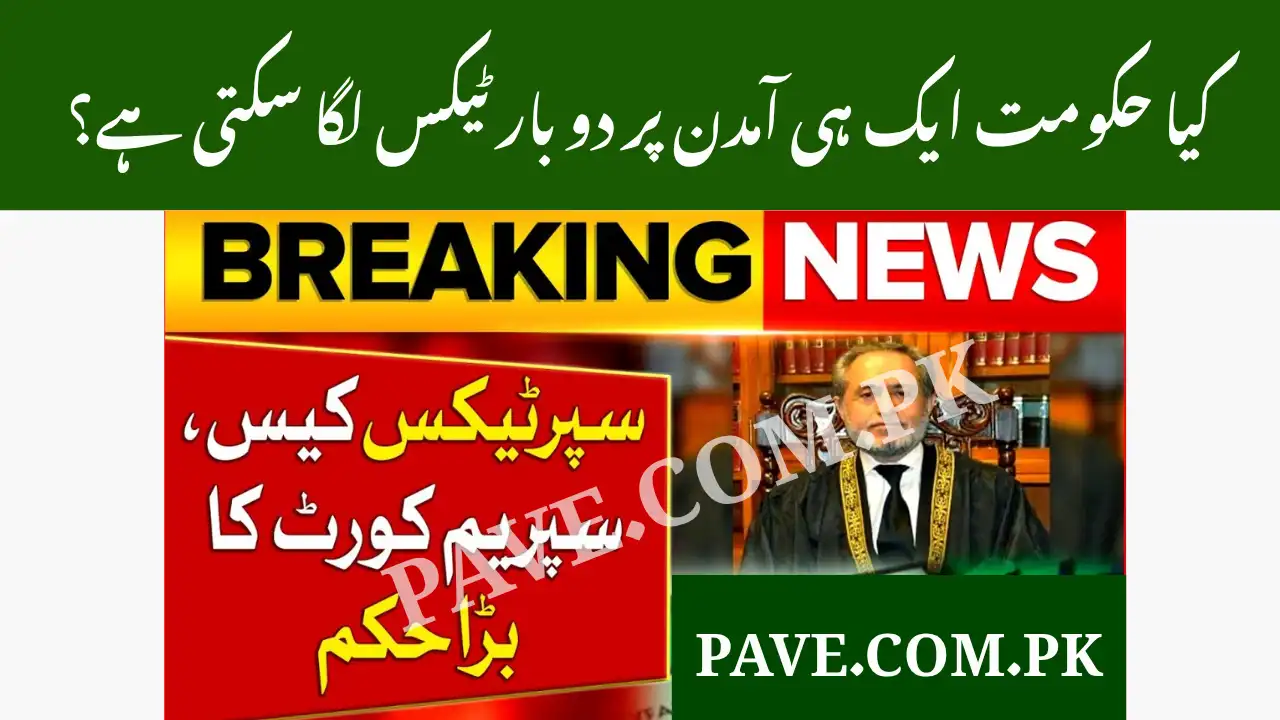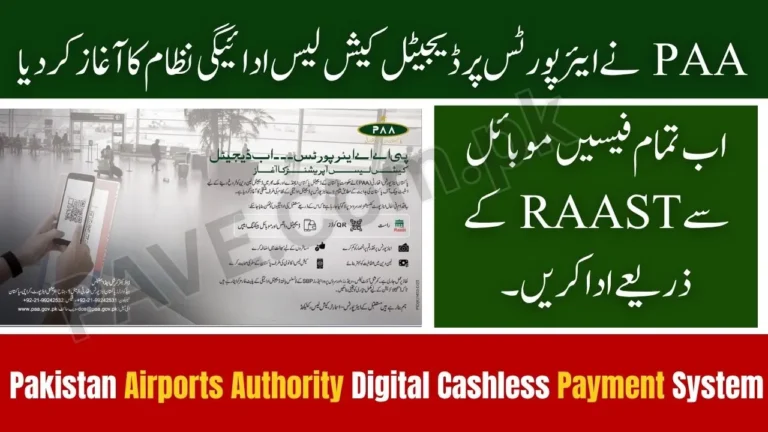Super Tax Case Supreme Court: Double Taxation Debate
The Super Tax Case Supreme Court proceedings have triggered one of the most significant debates in Pakistan’s recent tax history. At issue is a powerful principle of law and fairness: Can the government impose multiple levies on the same income?
This case is not just about legal interpretation. It has far-reaching implications for businesses, investors, and Pakistan’s fragile economic stability. As the Court evaluates whether double taxation in Pakistan super tax is permissible, the outcome could reshape the way future taxes are designed and applied.
Why the Case Matters
The case is not only being monitored by lawyers and policymakers — it has caught the attention of the entire business sector. Companies argue that the government’s attempt to levy a super tax under Section 4B of the Income Tax Ordinance 2001 places an unfair burden on already-taxed income.
- For businesses: it means reduced profits and less capital for reinvestment.
- For the government: it represents a critical source of revenue during a fiscal crunch.
- For ordinary citizens: the principle set here could influence how taxation is applied more broadly in the future.
The Supreme Court decision on super tax 2025 is, therefore, about much more than one levy. It’s about balancing the state’s power to collect revenue with the taxpayer’s right to fairness.
The Bench and the Petition
The matter is being heard by a five-member bench led by Justice Amin-ud-Din Khan, joined by Justices Jamal Khan Mandokhail, Muhammad Ali Mazhar, Syed Hassan Azhar Rizvi, and Shahid Bilal Hassan.
The petitioners — large taxpayer companies — are represented by Barrister Farogh Naseem, who has built his case on the argument that Pakistan’s legal framework does not allow the state to charge the same income twice.
Check Also: Tax Return Filing Deadline Extended by 15 Days
Arguments Presented by Barrister Farogh Naseem
In his arguments, Naseem dissected the history of tax laws in Pakistan:
- The 1922 Act and the 1976 Act each treated surcharges differently.
- The Income Tax Ordinance 2001, according to him, does not authorize super tax as a separate additional levy.
- He argued that while surcharges may be permissible during income assessment, imposing another layer afterward crosses into the realm of double taxation in Pakistan super tax.
He further illustrated his point with a simple example:
“Imagine an account opened in January and closed in December of the same year. Tax is imposed even though the obligations have already been discharged. That is not fair taxation — it is double taxation.”
Judicial Concerns During the Hearing
The Supreme Court bench did not remain silent spectators.
- Justice Jamal Khan Mandokhail directly questioned: “How can super tax apply to income that has already been assessed and taxed?”
- Drawing a parallel with criminal law, he noted:
- “When two provisions overlap, punishment is applied under the one with the lighter sentence. Tax law should follow the same principle.”
This observation highlighted the Supreme Court legal challenge Pakistan faces — finding the right balance between government authority and taxpayer protections.
The Role of Section 4C
Section 4C of the Ordinance became a focal point of debate. Critics argue that its wording is ambiguous and leaves too much room for interpretation.
Justice Mandokhail asked Naseem if, given his past role as a lawmaker, he had contributed to drafting the clause. Naseem clarified that he had not, further fueling the perception that legislative ambiguity is driving this dispute.
The central question: Is Section 4C a legitimate legal basis for an additional levy, or is it a legislative loophole now being stretched to justify more taxation?
Business Sector Reactions
The super tax legal challenge Pakistan has alarmed corporate leaders and investors.
- Profitability: Businesses warn that taxing the same income twice will stifle growth.
- Foreign Investment: Multinational companies may reconsider operations if tax laws are perceived as unpredictable.
- Compliance Burden: Companies spend significant resources on navigating overlapping provisions.
Business chambers have stated that the Court’s ruling will either restore faith in Pakistan’s tax system or deepen investor concerns about fairness and transparency.
Economic and Fiscal Context
The timing of this case is critical:
- Pakistan faces rising fiscal deficits and is under pressure to expand revenue collection.
- The IMF and other lenders continue to demand stronger tax enforcement.
- Inflation and rising energy costs have already squeezed corporate margins.
Thus, the government argues that super tax is necessary for revenue mobilization, while businesses counter that it undermines economic competitiveness.
Potential Outcomes of the Supreme Court Decision
The Supreme Court decision on super tax 2025 could lead to several possible outcomes:
- Ruling Against Double Taxation: This would strike down super tax as currently applied, providing relief to businesses and clarifying future policy.
- Upholding Super Tax: This would strengthen the government’s power to collect revenue but may dampen investor confidence.
- Modified Interpretation: The Court may allow limited application of super tax with clearer guidelines to avoid double taxation.
Each scenario will shape Pakistan’s tax landscape for years to come.
Why This Case Sets a Precedent
The Super Tax Case Supreme Court Pakistan is precedent-setting because it tackles not only the issue of one levy but also how overlapping laws should be interpreted.
- It could establish a stronger principle of taxpayer choice, allowing individuals and businesses to adopt the more favorable law when ambiguities exist.
- It may force lawmakers to draft clearer tax provisions in the future.
- It could inspire further legal challenges where taxpayers feel unfairly burdened.
Read More: UAE Visa 2025 Rules for Pakistani Applicants
Frequently Asked Questions (FAQs)
Q1: What is the Super Tax Case Supreme Court about?
It is a legal challenge questioning whether the government can impose super tax in addition to regular income tax without violating the principle against double taxation.
Q2: Why is Section 4C controversial?
Because it is vaguely worded, creating uncertainty about whether super tax is a legitimate separate levy or just another form of income tax.
Q3: How will the decision affect businesses?
If double taxation is struck down, businesses may see improved profitability and investor confidence. If upheld, compliance costs and tax burdens will rise.
Q4: What impact does this case have on Pakistan’s economy?
It could influence investment flows, fiscal strategy, and the country’s reputation for transparent taxation.
Conclusion
The Super Tax Case Supreme Court hearing is a defining moment for Pakistan’s legal and economic framework. At stake is not just the legality of a specific levy but the broader principle of fairness in taxation.
If the Court rules against double taxation, it will affirm taxpayers’ rights and strengthen investor confidence. If it rules in favor of the government, it may secure immediate revenue but risk long-term economic costs.
For now, the case remains adjourned, but its eventual verdict will echo far beyond the courtroom — shaping the future of double taxation in Pakistan super tax and the delicate balance between government needs and taxpayer protections.







